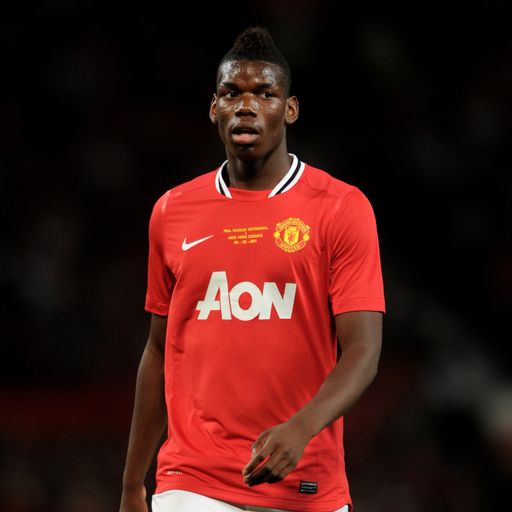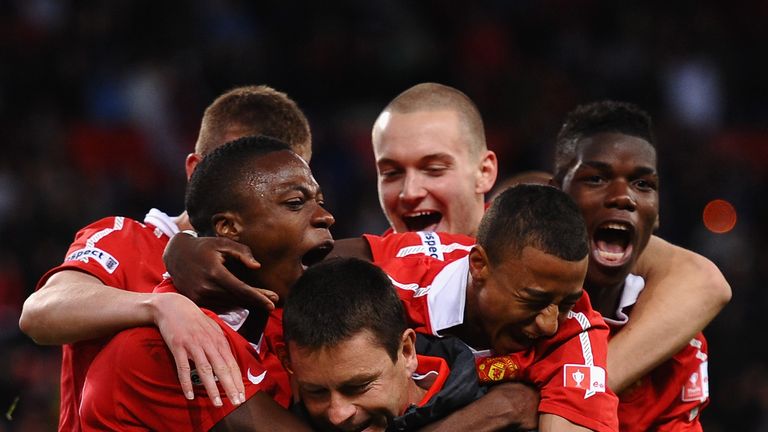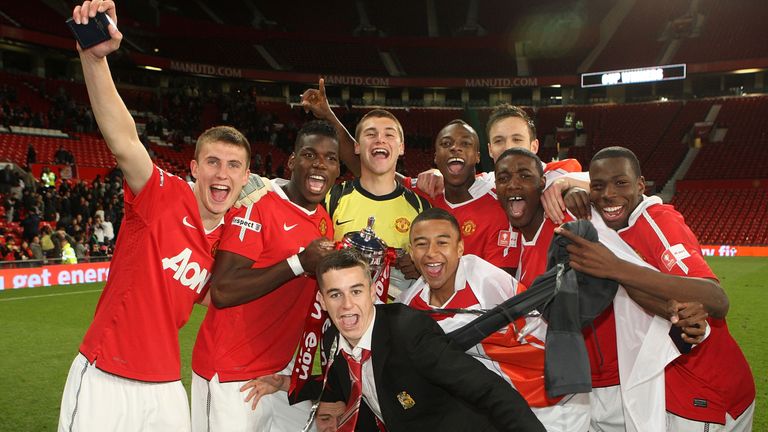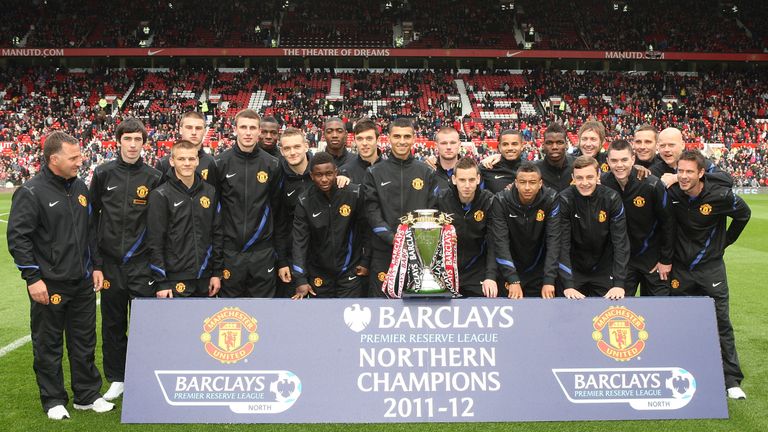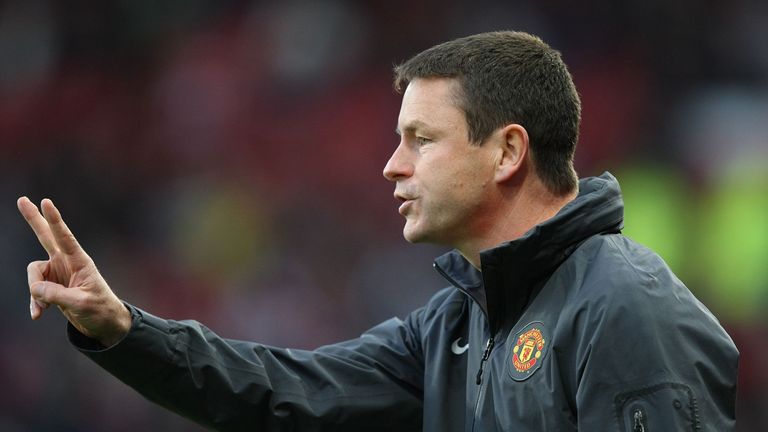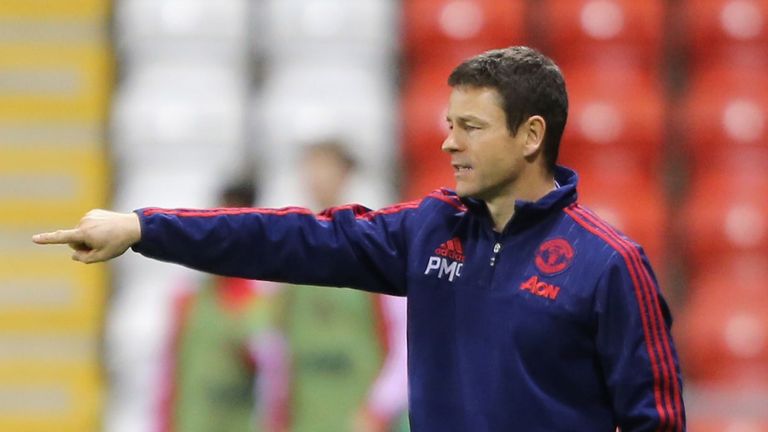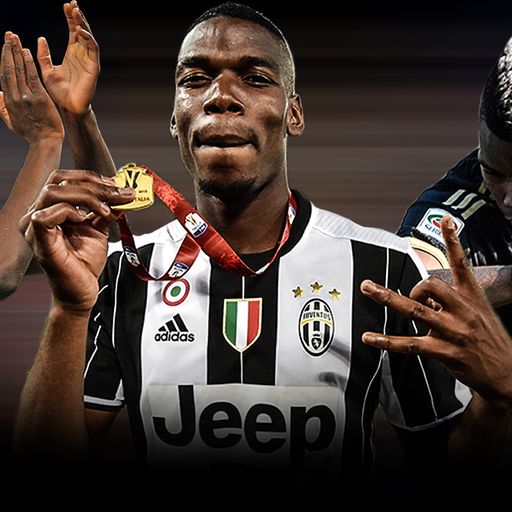How Paul Pogba's Manchester United stay helped him develop
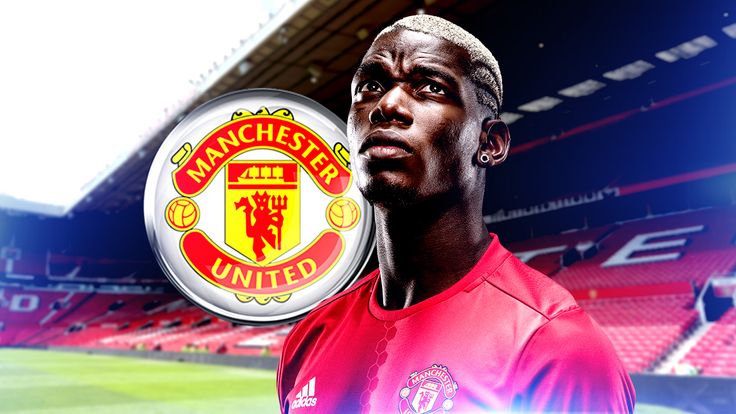
Tuesday 9 August 2016 09:34, UK
In conversation with former Manchester United youth coach Paul McGuinness, Adam Bate examines how the learning culture at the club helped Paul Pogba develop into a star.
It might have been Paul McGuinness's first summer since his 28-year stay at Manchester United came to an end, but he had no appetite for a break from football. Instead, the former United youth coach travelled to France to see some of the club's 13 graduates in action.
He took particular pleasure in James Chester's performances for Wales at Euro 2016. But the first game that McGuinness saw was the hosts' opener against Romania in the Stade de France. His former charge Paul Pogba was expected to be the star of the show for France.
He had his moments. There was a fine volley and a spectacular angled through-ball. But Didier Deschamps dropped Pogba for the next game amid talk he attempted too much. For McGuinness, it's the memories of the 16-year-old who arrived from Le Havre that endure.
"He's still developing," McGuinness tells Sky Sports, his protective instincts as attuned as ever. "Everyone thinks he has to be the finished article but he's only 23. There are things to work on but the potential is massive. He's fantastic physically and has incredible skills.
Trending
- Papers: Man Utd hesitant on triggering Carreras' £25m buy-back clause
- Hits and misses: No stopping Liverpool, Chelsea have a lot to learn
- Amorim has 'no idea' how long it will take to turn Man Utd around
- Cunha inspires Wolves to deal 10-player Man Utd third successive defeat
- Transfer Centre LIVE! Amorim's managerial replacement at Sporting sacked
- Salah caps off Liverpool comeback win after early Leicester strike
- Salah caps win over Leicester as Liverpool breeze to victory LIVE!
- Man Utd latest: The damning stats behind Amorim's start as head coach
- World Darts Championship schedule: Bunting, Price, Humphries headline Friday
- Slot: Man City's drop-off shows it’s too early to celebrate
"The likes of Zinedine Zidane didn't become a real force until later on. You have to find your whole game. He's already there at the top but there's also the prospect of what he could become if he carries on working hard. He really could become a special player."
The journey to becoming that special player began in earnest at Old Trafford. After joining the club in 2009, Pogba became one of the stars of a strong youth team that included Jesse Lingard and Ravel Morrison. Under McGuinness, they won the 2011 FA Youth Cup.
One of the players in that squad, John Cofie, insists McGuinness deserves much of the credit for aiding Pogba's development but - ever the team man - he gives such words short shrift. "I don't know about that," says McGuinness. Too many others played their part as well.
There was Jim Ryan, the veteran United man who was the club's director of youth football at the time. "Jim was closely involved with Paul in bringing him over and scouting him," adds McGuinness, now 50. "He had a close eye on his development."
There was Warren Joyce, United's reserve-team coach who focused on making Pogba a better player once at Carrington. "Warren really challenged him and pushed him too so he could become someone who could defend and attack."
The truth is that player development at United at that time was not about any individual but the culture that had been created. It stemmed from Sir Alex Ferguson giving coaches the freedom and security to provide an environment in which players could express themselves.
McGuinness, whose father Wilf succeeded Sir Matt Busby as United manager, is steeped in that tradition. "The part we played was that we encouraged the skills you see now," he explains. They are the skills of the playground but there's more to it than that.
"People think it was street football but that wasn't the case," he explains. "We focused on all aspects of the game. But we did believe that developing skills in a playful environment was good for them. We had several sessions a week in which they were encouraged to play.
"They'd go in a cage in large numbers and we'd mix the age groups. Paul was a bit of a Pied Piper in there, looking after the young kids and patting them on the head. They all looked up to him and tried to copy him. It was a real melting pot and there were so many clever skills.
"There was another session we'd have on a hard floor of the gym. It was a relaxing session when they were tired. It would start off slow but then Ravel would do something, then Pogba would do something and then the next one would do something.
"It turned into a competition. Sometimes it would just go into overdrive with these super-fast skills because they all wanted to show that they were the best. Some of the stuff was amazing. It was real high-level skills on display.
"You'd see Paul flicking the ball over someone's head and then dragging the ball back with the sole of his foot. The fact that as coaches we were relaxed and weren't judging everything that was going on was just perfect for encouraging these skills.
"We didn't teach Paul those skills. He had them before he came and was already high class in those things. But that environment encouraged him. If you want players to show disguise and feints you can't really coach that. They have to just try it."
As McGuinness points out, when one tries it then others will follow. "They'll see something that Ravel does and then they'll try to copy it," he continues. "One of the young ones will copy Pogba. That training encourages the development of those skills.
"Younger lads learn by osmosis. It takes time. For the first few weeks they are on the sides and after a while they get in the middle. That's because if they're ambitious, which is what you want, they want to be there in the middle with Ravel or Pogba combining with them.
"Then there'll be younger ones than them who want to learn off them. It's a cycle because they become the big man that everyone's copying because they're showing what they've learnt from the older boys."
McGuinness's garden leave following his United exit comes to an end in August, at which point he plans to get back to work. In the meantime, he's been giving talks to the Football Association and fellow coaches explaining this virtuous cycle that can be developed.
"I'm trying to impress on people the need to create that culture," he says. "Everyone is saying that this is what the under-17s to under-21s are missing, that they're not playing with the senior pros. But it's the same with a 12-year-old and a 15-year-old."
And what better example than Paul Pogba, the player who has become a star for Juventus and France and returned to Old Trafford in a world record transfer. "Certainly that culture helped him," says McGuinness. Pogba now has the chance to return the favour and inspire another wave of young talent at Carrington.
